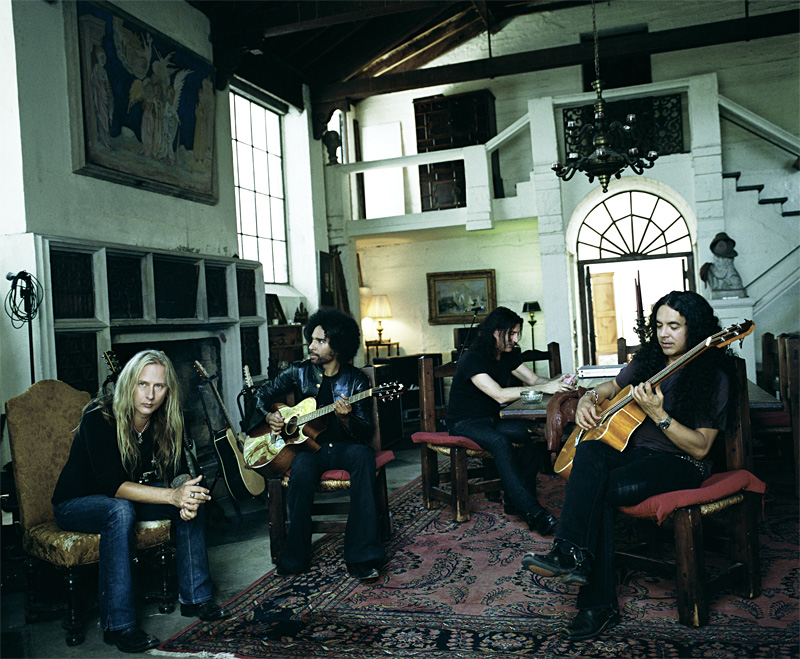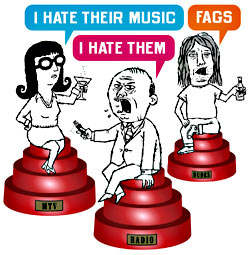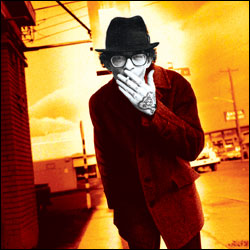One of the credos of the late ’70s punk scene was that anyone, whatever their skill level, could make music. So when 14-year-old Ariana Forster was approached by Paloma Romero at a Clash show in London in 1977 and asked if she’d be interested in forming an all-female band, she thought nothing of it. “We were born into a revolution, so it was an automatic step,” she explains, referring to the energy punk had injected into a stale music scene. Forster quickly became “Ari Up,” Romero rechristened herself “Palmolive,” and the Slits started the next day. Soon after, the band played its first gig, opening for the Clash on their “White Riot” tour.
Of all the reunions of punk and post-punk bands that have occurred over the last decade, the Slits’ was among the most unlikely, given that the band’s ragamuffin appeal was mostly confined to the fringes of a music scene already on the fringes of the mainstream. Despite the 25-year gap between Return of the Giant Slits and their latest, Revenge of the Killer Slits, Up insists the current group is not so much a re-formation of the band, but a “continuation.” Now on tour, the band looks forward to returning to our neck of the woods, where the Slits first played in 1980. “Seattle was a big favorite for the Slits because it was a very receptive place,” says Up.
Nice to know we had a reputation for open-mindedness even then, something that set us apart from what the band usually experienced. “American radio shows asked really dumb questions, and they completely didn’t understand what we were doing,” says Up. “They couldn’t perceive the type of women we were at the time. It was outside people, like the music industry, who couldn’t get it, you know? In America, as in Europe, they would just not understand us.”
But even that didn’t compare with what they faced in their own country. “Being in England was actually really dangerous, because it was life threatening,” says Up. “When we were walking on the street, we were attacked; I was stabbed in the back. Imagine when you look different, you’re in a revolution that people had slightly started noticing, and you’re women. It was bad enough when it was the guys. [Sex Pistols Johnny Rotten and Paul Cook were also attacked in public at the time.] When it was women, it was just really impossible.”
Today it’s hard to appreciate the shock value punk had in the ’70s, and why a band of young women in dreadlocks and mismatched thrift-store wear could outrage the public. And by the time the Slits released their debut album, Cut, in 1979, they weren’t even playing punk anymore but had moved into reggae. The album’s cover, with the group wearing loincloths and covered in mud, provoked further controversy. “We were in the country,” Up says of the photo shoot. “And somebody was taking pictures. There was a lot of mud, and we just spontaneously rolled around in it and said, ‘OK, take us like this, then.’ It was a spur-of-the-moment thing.”
The effect was more tribal than sexual and certainly at odds with what their A&R man would’ve preferred them to do, “a really sleazy album cover with us looking like Charlie’s Angels or whatever, all glossy. I was thinking, what the hell is he talking about? He really fucking missed it, if he was so involved with the Slits and still didn’t get it. . . . That just shows why we didn’t like him.”
The band split in 1981, and that might have been the end of the story. Except a strange thing happened—the influence of the Slits lived on. Mudhoney parodied the Cut cover on their “You Got It” single, and the Riot Grrrl movement provided a further boost. “That really helped the Slits enormously,” says Up. “That’s what made the legend grow. They showed very honestly that they were very influenced by and got a lot of power from the Slits. It helps a lot.” In 2004, Cut was finally released in America, having previously been available only on import.
Meanwhile, the Slits were working on their own various projects, with Up dividing her time between New York and Jamaica. While touring as a solo act in England, Up reconnected with Slits bassist Tessa Pollit, and the two decided to relaunch the band with new members and recorded a three-song EP, Revenge of the Killer Slits.
But some attitudes die hard. Up was horrified to run into her old A&R man who told her that today’s version of the Slits would probably be . . . the Spice Girls. “If there’s going to be something like the Spice Girls,” says Up, “then let there be space for someone like the Slits. I just think it’s a shame when there’s no space for real women.”








